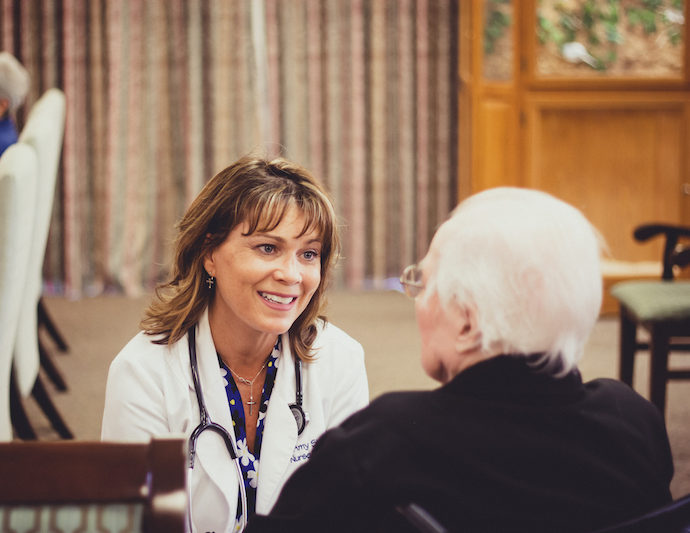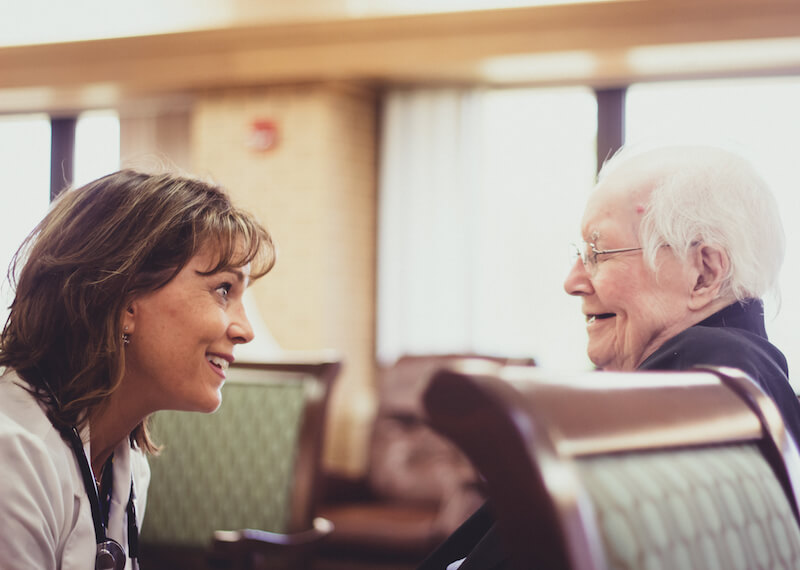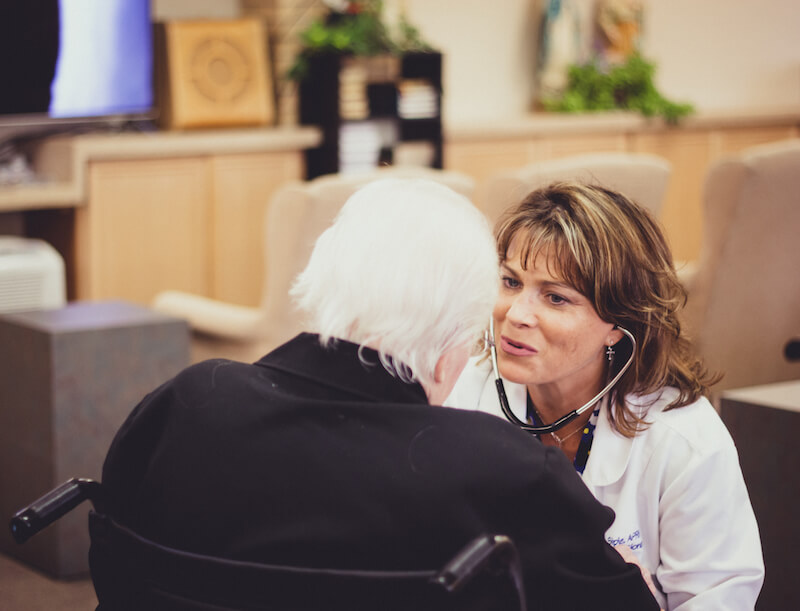
Amy Siple: a calling to care
Amy Siple, associate professor of nursing at Newman University, has been helping patients with dementia and their families since the beginning of her nursing career.
When she is not teaching courses at Newman, Siple works as a nurse practitioner for a Wichita geriatrician and sees patients. She is also an avid volunteer in the medical community, speaks at community centers and helps individuals work through the process of caring for friends and family with dementia diseases.
She discovered her passion in the early ‘90s while making the decision to become a nurse. Initially thinking she wanted to go into pediatric or family care, Siple found she was drawn to an older demographic of patients.
“I was really drawn to the elderly and I think that was a God thing because that wasn’t my initial inclination,” said Siple. “I wanted to learn more about dementia and Alzheimer’s so I just started educating myself, reading everything I could. And then I became a nurse practitioner and I started taking care of patients in long-term care settings.”
Siple focuses on treating the person rather than treating the disease. Because there is no cure for dementia diseases, she believes it is that much more important to find individual care needs for each person. Her goal is to help them live comfortably and to help the patient’s family and caregivers understand and cope with what they are experiencing as well.
“I always tell nurses when I come in the building, ‘If you have any behavior problems, I want you to come get me while I’m here. I want to see what’s going on.’ I use that as a learning opportunity to teach them how to work with clients rather than giving meds right away.
“We can work directly with the patients and try to enter into that client’s reality, if you will, understanding that we can diminish a lot of the patient’s anxiety and agitation if we just put ourselves in their position.”

“For a long time, God has given me a passion for this population and I feel like they are underserved and misunderstood and they are certainly very vulnerable.”
Amy Siple
She has spent years researching the different types of dementia, including Alzheimer’s, understanding patient behavior and perception as well as methods of care.
“People (with dementia) have all the same emotions that the rest of us have. They have fear, especially if they don’t know where they are, how they got there. They have anxiety, they have hunger … but their body is prohibiting them from expressing it.
“So I started thinking about how I would express all of these symptoms if I didn’t have the ability to do it — what would that look like? I really became interested in that, studying it and working with clients.”
As she started to gain more knowledge and expertise in the field, the medical community started to notice. Soon, Siple was being asked to speak to nurses at a variety of care facilities, which led to speeches at hospitals, national conferences and organizations such as the Alzheimer’s Association.
In 2018, Siple was invited by Kansas Gov. Jeff Colyer to serve as a member of the Alzheimer’s Disease Working Group for the state. The group, which was made up of officials from the Alzheimer’s Association, the Kansas Department of Aging, Kansas Advocates for Better Care and other organizations as well as an Alzheimer’s patient and a patient’s family member, were charged with creating recommended policies and practices to better serve Kansas’ growing Alzheimer’s population.
“For a long time, God has given me a passion for this population and I feel like they are underserved and misunderstood and they are certainly very vulnerable. God has given me a true love for clients with Alzheimer’s disease, and (the field of) geriatrics in general,” said Siple. “I want to be their advocate and I am 100% certain that we can improve their quality of life and quality of care if we take some intentional steps.”
Siple has realized her goal of creating a stand-alone geriatrics course at Newman University and is hopeful that more can be offered in the future.
As for her personal goals, she said she wants to help develop ways to provide a home care environment that keeps patients out of nursing homes. She explained that with the growing aging population, there is a real threat of having more patients than beds.
“Something like 10,000 people in the baby boomer generation turn 65 every day. Half of people over the age of 85 have Alzheimer’s. With the aging of the population, we are going to face a legitimate crisis in the future, so we really need to be more forward thinking rather than reactionary.”
Whether it’s teaching, volunteering or advocating, Siple said she will continue to be involved in whatever way she can.
“I feel like this is an area that God called me to because I know we can make a difference and it’s exciting to me to work in an area where I know that. He is working through me to make a positive impact in other people’s lives.”


